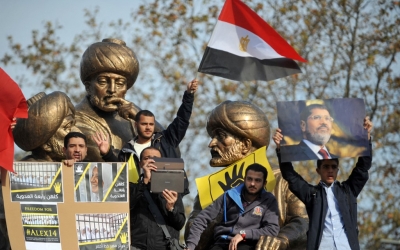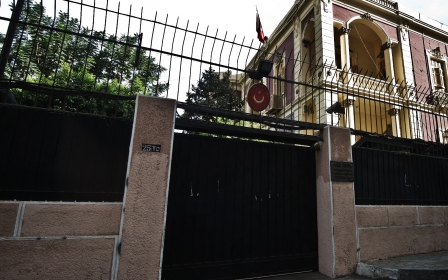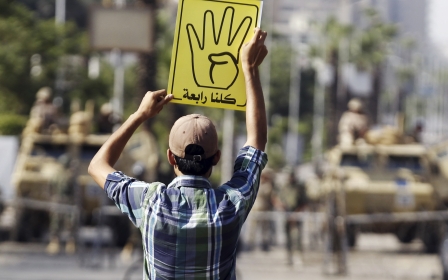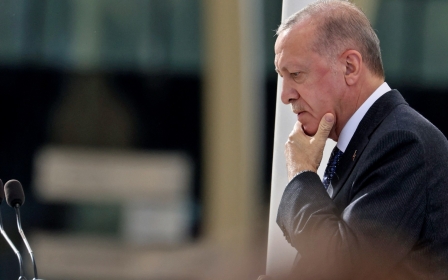Turkey: Officials deny arrest of 34 Muslim Brotherhood members
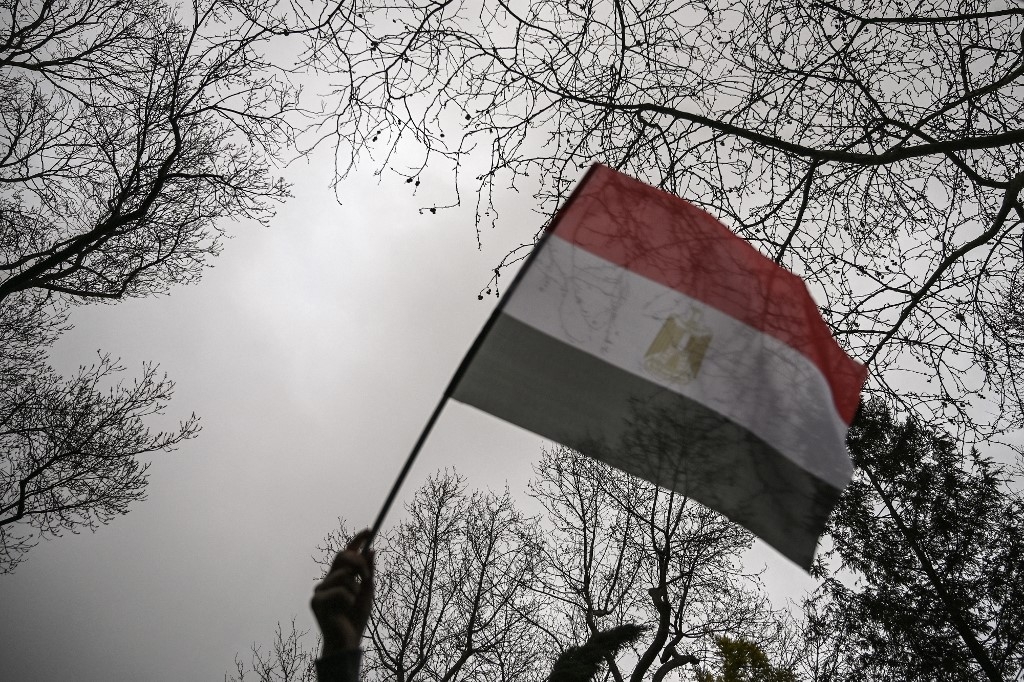
Multiple Turkish officials denied on Monday reports that Ankara had arrested 34 Muslim Brotherhood members who called for protests in Egypt during the UN Climate Change Conference, Cop27, set to start in Sharm El-Sheikh later this week.
Saudi-funded newspaper Asharq Al-Aswat reported on Sunday that Ankara arrested dozens of Muslim Brotherhood members after they prepared to launch a new Telegram channel to "incite protests, acts of violence and chaos in Egypt" on 11 November.
Citing pages and outlets linked with the Muslim Brotherhood, Asharq Al-Aswat added the supposed detainees were also included on a deportation list.
'We only detained an Egyptian journalist who was later released'
- Turkish official
Two senior Turkish officials told Middle East Eye no such arrests were made.
A separate Turkish source told MEE that Arab media regularly publish similar allegations to stir up trouble and make Muslim Brotherhood leaders in Turkey feel uncomfortable.
New MEE newsletter: Jerusalem Dispatch
Sign up to get the latest insights and analysis on Israel-Palestine, alongside Turkey Unpacked and other MEE newsletters
"We only detained an Egyptian journalist who was later released," one senior Turkish official told MEE.
Egyptian journalist Hossam al-Ghamry revealed on Twitter on Sunday that he was detained by Turkish police and later released following an outcry on social media.
"I am back home, thanks to God. This experience helped me understand the feeling of my son Yusef who has been forcibly disappeared, without a crime except being my son," Ghamry said.
The journalist's son Yusef al-Ghamry, 24, was taken from his home in Sharqia Governorate by Egyptian security forces on 25 October to an unknown location, and his whereabouts remain undisclosed, according to Egyptian human rights organisation Egyptian Initiative for Personal Rights (EIPR).
The engineering student was detained after his Istanbul-based father joined other exiled Egytian dissidents in calling for mass anti-government protests in Egypt on 11 November, which have gained some traction online.
Media shut down
Since President Abdel Fattah el-Sisi ascended to power following a military coup in 2013, the Egyptian government has carried out a large-scale crackdown on dissent. All political opposition and independent media have been banned in the country, with many journalists fleeing and going into exile and launching channels abroad, mainly in Turkey.
MEE reported last year that Turkish authorities requested Egyptian opposition channels based in the country to soften their criticism of the Sisi government as the two regional powers began improving ties following years of diplomatic hostility.
As a result, several Egyptian opposition journalists who used to work from Turkey relocated to London and launched their own social media platforms.
Earlier this year, opposition TV channel Mekameleen announced that it had shut down its Turkey offices and would be broadcasting from other locations.
However, several Turkish officials previously told MEE that Ankara does not plan on deporting Brotherhood members unless they are directly involved in violent crimes.
Turkey and Egypt have sought to mend relations that were fractured after Ankara refused to recognise Sisi as the country's legitimate leader following the 2013 military coup that ousted his predecessor Mohamed Morsi, the country's first democratically elected president.
Turkish President Recep Tayyip Erdogan was also a vocal critic of Sisi's human rights abuses against the leaders and members of the Muslim Brotherhood in a post-coup crackdown.
In an attempt to mend relations, the Turkish government lifted a veto against Egypt's partnership activities with Nato last year ahead of two rounds of preliminary talks held between officials.
Reconciliation on hold
Another issue in the Egyptian-Turkish rift was their support of opposite sides in the Libyan conflict which has resurfaced recently.
On Friday, Egyptian Foreign Minister Sameh Shoukry told Al Arabiya that dialogue with Ankara has stopped since Turkey didn’t change its policies in Libya.
"The two exploratory meetings allowed the chance to express our concerns about the regional situations. This path has not resumed, as there have been no changes in terms of Turkey's practices in Libya," Shoukry said.
Turkey signed a comprehensive energy deal with Libya’s UN-recognised Government of National Unity (GNU) earlier this month for land and sea exploration. The move was interpreted as Ankara throwing its weight behind Prime Minister Abdul Hamid Dbeibah, whose legitimacy is questioned by the Libyan parliament, known as the House of Representatives.
Egypt claims that Dbeibah’s mandate has expired since the House of Representatives elected Fathi Bashagha as the new prime minister in February. Dbeibah has refused to give up his post until a new general election is held.
Turkish officials largely see the Libya file as the beginning point of reconciliation talks with Egypt.
Middle East Eye delivers independent and unrivalled coverage and analysis of the Middle East, North Africa and beyond. To learn more about republishing this content and the associated fees, please fill out this form. More about MEE can be found here.


